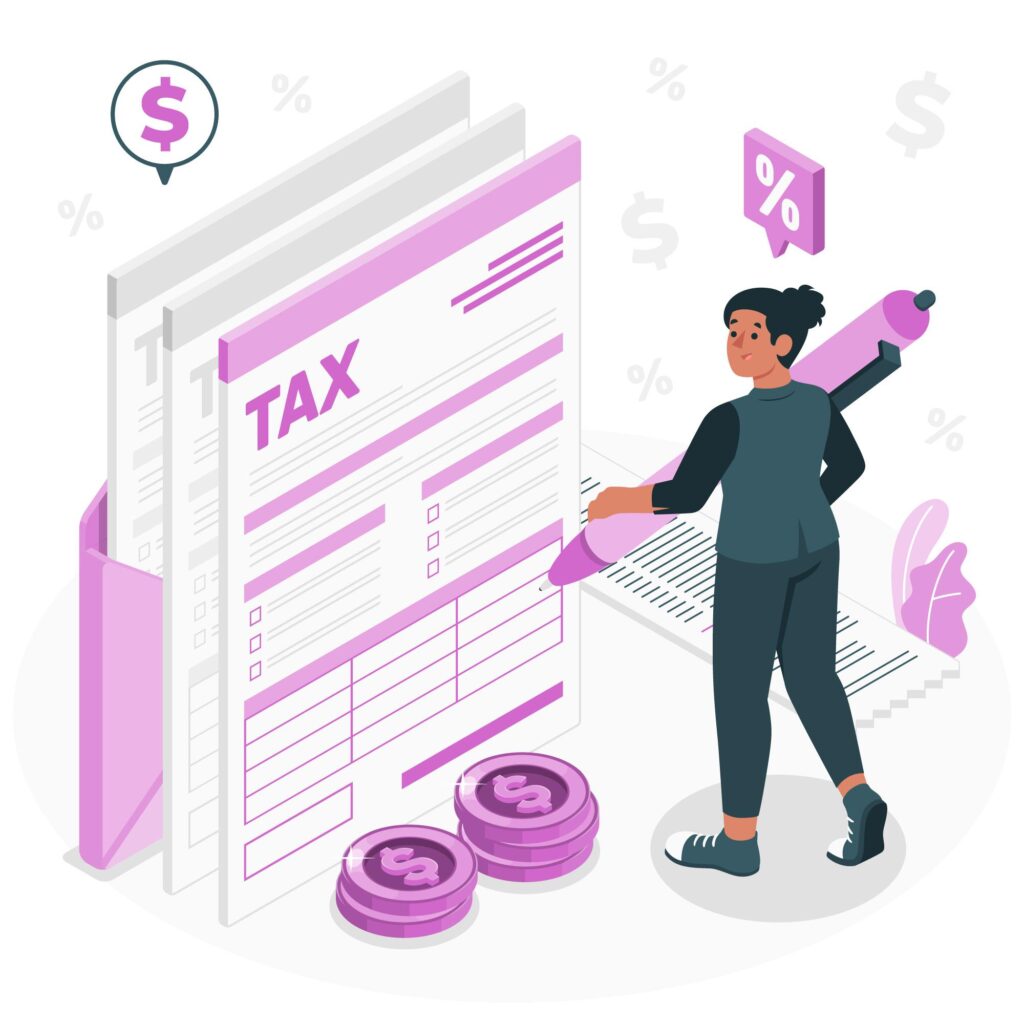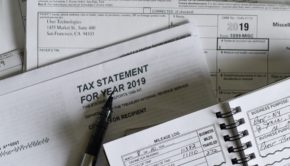Tricks To Gain From Your Property Tax And Benefits On Investment
Whether you own residential or commercial property, a property tax is necessary to pay. But if you ask some local property or homeowners, they’ll probably tell you that they pay too much. Property taxes are land taxes determined by local state-run departments and paid by property holders.
Taxes are the primary income for the government, as with the taxes acquired, different services are provided to the citizens. Each property is a taxable resource, and the property tax is paid by a property/landowner to the public authority every year. This tax could be paid either to the local state government or state authority, depending upon government policies. And, when you are investing in any property, you must have knowledge about how much tax will be levied on your invested property.
However, property taxes can be burdensome, especially for individual landowners. They are likely to rise over time. Indeed, even after you take care of your home loan or commercial property loan, the tax bills continue to come.
One cannot avoid paying property tax; however, you must understand what you are paying and how to make benefit from it. We’ve outlined nine tricks to follow to make the most benefit. Also, look at the benefits of investing in a residential and commercial property.
Tricks To Save On Your Property Tax

Image Source FreePik
1. Understand What Is In Your Tax Bill
If you believe you are paying excessively, understand how this figure comes on your bill. Unfortunately, numerous property holders pay property taxes, but never check how it is calculated. It may be confusing or challenging for some, particularly when there are different calculations on property taxes between two neighboring towns.
Property taxes are calculated utilizing two vital figures—the tax rate and the current market worth of your property. The rate at which taxing specialists reset their tax rates depends on state law. Some change them every year, while others do in different variations, like once in five years. If you own an office, it may slightly different.
An assessor is employed by the local government to check the market worth of your property, which incorporates both the land and design. After that, you get an evaluation. Your nearby tax authority’s office sends you your property tax bill, which depends on this evaluation. Hence, you must understand your bill before paying as if your property is worth it or not.
2. Do Not Build Extra
Any underlying changes to a home or property will increase your tax bill. A deck, a pool, an enormous shed, or any other installation added to your house or office will increase its worth as well as your tax bill.
Property holders should research how much an addition will increase their property tax bill before they start to construct. Call the nearby structure and tax offices and get a quote for the same.
3. Request Your Property Tax Card
Few property holders know how to get a copy of their property tax cards from the nearby assessor’s office but most of us are not aware. The tax card gives the property holder data that the town has gathered about their property over time.
This card includes data about the size of the property, the exact dimension of rooms and the number of fixtures situated inside the home or building. This card will also help the business owners not commit the 5 most common tax return mistakes.
4. Limit Your Curb Appeal
Tax assessors are given a strict set of rules in the real assessment process. However, the assessment contains a specific amount of subjectivity. This means more beautiful homes often get a higher value compared to less appealing houses.
Remember, your property is compared with your neighbors’ during the assessment, as well as others in the overall area. While it might be troublesome, limit your curb appeal before the assessor’s appearance.
5. Research Neighborhood
As referenced above, data about your house is compared with the neighborhood. What many people don’t understand is that much of the time, data about other home assessments are additionally available to the public.
Review similar homes nearby and general statics about the town’s assessment results. You can often find discrepancies that could bring down your taxes.
6. Allow Tax Officer To Access Your Property
You have to permit the tax officer to check your property. However, what usually happens if you don’t allow access to the inside of your home or office, then the officer assumes you’ve made specific changes like extra fixtures or made extreme repairs. This could result in a bigger tax bill.
Numerous towns have a rule that if the property holder doesn’t allow full access to the property, the assessor will automatically evaluate the higher value of the property—reasonable or not. Now, it’s dependent upon the person to question the assessment with the town, which will be almost impossible except if you don’t permit access inside.
7. Go With The Tax Officer To Check In The Property
Many individuals permit the tax assessor to enter their homes or property unguided during the assessment time. This can be a mistake. A few assessors will just see the good points in the home, for example, the new chimney or marble-topped counters in the kitchen. They’ll neglect the fact that few appliances are outdated or cracks are showing up in the roof.
To prevent this from occurring, make certain to walk the home with the assessor and point out the good points as well as the lacks. This will guarantee you get the fairest valuation for your home.
8. Look Out What Exemption You Can Avail
Exclusions don’t simply apply to strict or government associations. You might meet all requirements for an exemption if you fall into specific categories. A few states and regions lower the tax burden for:
- Seniors
- Veterans
- Individuals with specific disabilities
- Agricultural properties
- Estate exceptions
9. You Can Appeal For Your Tax Bill
If you’ve done everything you can and haven’t figured out how to get your tax assessment to see things your way, don’t worry. You have another option available – the tax appeal.
It may cost you a little for filling a tax appeal. The tax appeal requires the help of an attorney. You have to pay the appeal fee to your lawyer. Your appeal should be filled without wasting much time; otherwise, you’re left with the bill you get from your nearby tax office.
After understanding your property tax bill, you must wonder if you have to invest in residential property or commercial property for future benefit. So, here are some beneficial reasons for both and how you can save the tax on each property:
Why Investing In A Residential Property Is Beneficial?

Image Source Freepik
No doubt, residential property investment is complex but much more beneficial if you crack the right deal. This can be proved a one-time investment if you choose the right residential property. It gives you continuous cash flows for a whole life. If you are not convinced yet, here are the benefits of investing in residential space:
- It gives you potential tax benefits in many ways like deductions related to depreciation.
- Residential property is a hard asset – that means the intrinsic value of both land and building.
- If you choose your property with a strategy, it gives steady income for a long time.
- Investment in the right property will help you increase your money.
- The lease agreements on the residential property are long-term, which means you can live without a worry about extending the lease every year.
Why Investing In A Commercial Property Is Beneficial?
If you are wishing to invest in commercial property, then before making a deal, it is basic to research a little about where you are putting your cash and make a beneficial investment to boost your profits. Commercial property taxes are different from residential property. So, to make the most benefit on your property, first, check whether the property can save your cash on the tax bill on not. Here are some reasons that investing in a commercial property is beneficial:
- There are many tax benefits on commercial property investment. You are allowed to deduct a portion of your property’s value from your taxable income.
- You can avoid capital gains taxes when you sell your property.
- There are plenty of options in commercial property investment.
- Commercial properties have long-term agreements, which mean less turnover and stable cash.
- Commercial properties have income potential.
Conclusion
It may be difficult to adjust the craving for a lovely home with the desire to pay as little tax as could be expected. However, there are some easily overlooked details you can do to lessen your property tax trouble. Try not to make any upgrades before your home or property is assessed and follow the above-listed tricks.
Author Bio
Hi, I am Olivia Robinson, a writer, and blogger by profession. As I’m a wanderer, I share my experiences through my write-ups in a way that it’s understandable and appealing to the people. I aim to achieve a difference through my writing, which allows my readers to make informed and valuable choices.















